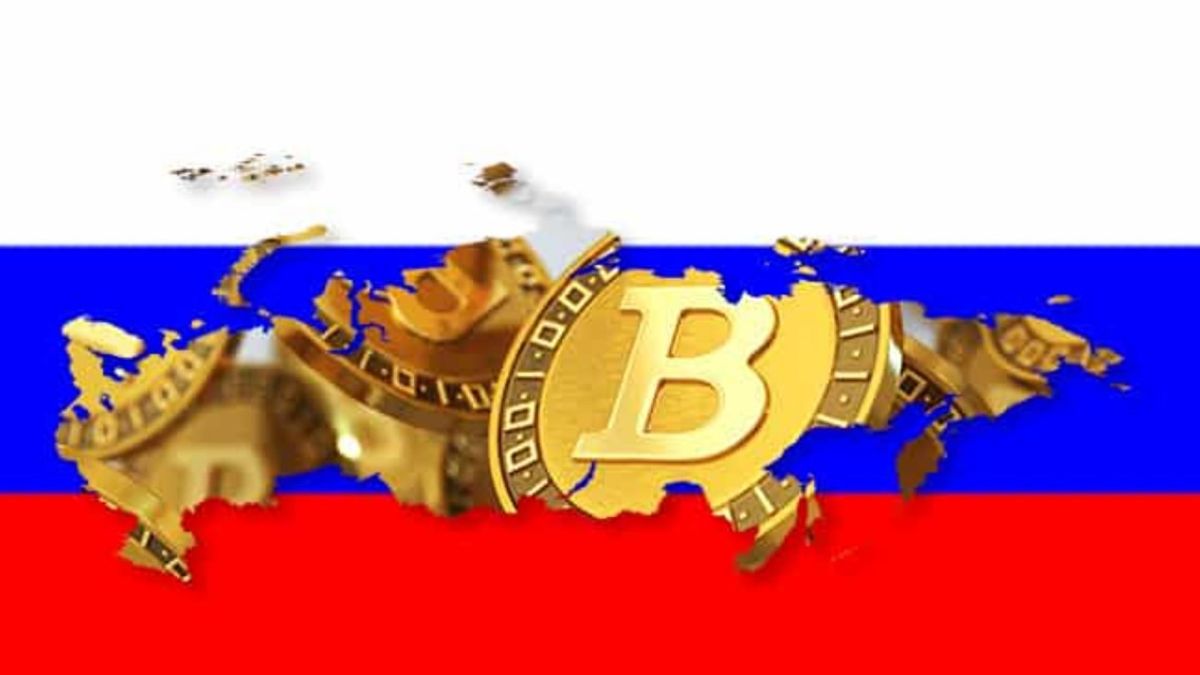Despite or maybe because of the war: Russia is fine-tuning the regulation of cryptocurrencies and pushing ahead with the development of a digital ruble. Politically, Russia is thus conforming to the policy of the West. Its sanctions are now also having consequences for cryptomining.
There seems to be little that politicians in Russia and the EU can agree on right now. However, one topic on which hardly any traces of dissent are visible is crypto wallets.
Both Russia and the EU agree that private individuals should not use wallets . It should be made difficult for people to manage their keys themselves. This most essential of all properties of cryptocurrencies: the autonomous storage of electronic values is a thorn in the side of those in power here and there.
Recently, the crypto scene was surprisingly optimistic about a change in a law regulating cryptocurrencies, through which the Russian Ministry of Finance is finalizing a draft published in February. There has to be time for that, even if you're committing mass murder. The draft recommends, as some irritated, cheering crypto magazines claimed, “making cryptocurrencies legal tender”. Russia may be a warmonger, a dictatorship, a propaganda state – but when it becomes the next El Salvador, some Bitcoiners will be willing to turn a blind eye and resort to whataboutisms with Nato and Serbia and so on.
Other news sites contradicted this cynical celebration. Claims that the Treasury Department is recommending making cryptocurrencies legal tender are wildly wrong, writes cryptonews.com . There is no mention of it in the text of the law, and while the law "legalizes" cryptocurrencies, it contains "many complicated requirements" that experts predicted "will crush public interest in crypto in Russia."
For example, Kommersant reports that the law will make it “impossible to buy or sell crypto anonymously” and that all transactions must go through a domestic bank. This was already spelled out in the original law published in February, which, as previously reported, serves legalization with a handful of rather bitter pills . In addition, there will be strict limits on how much money a private investor can invest in crypto per year. Investors should also only use domestic stock exchanges.
The banks of Russia agree in principle to the strict regulation, but are asking the central bank for slight, in some cases mitigating, changes. The Association of Russian Banks (ABR) has issued an open letter asking the central bank not to rely solely on the banks, but to create a central office that keeps the keys and can therefore collect cryptocurrencies at any time. The central state wallet, so to speak.
Furthermore, banks are in favor of criminally sanctioning the holding of cryptocurrencies in their own wallets, as provided for by the law. Unlike the Ministry of Finance, however, they do not want to prosecute the use of their own wallets, but only criminalize the refusal to hand out the key. If the government goes through with this approach it is proposing and backed by the banks, Being Crypto comments that it will “bar Russians from participating in most of the realm of decentralized applications and finance, which raises questions about civil liberties in a regime that is turning calls himself democratic.”
A background to this strict regulation could also be the will of the central bank to issue its own cryptocurrency - a digital ruble. According to the reports , work on it will continue despite the war of aggression, which violates international law , but it could still be a few years before the digital ruble goes live.
One would think that Russia is currently more concerned with sanctions than plans for a future digital ruble. Because the sanctions are also increasingly affecting the crypto industry.
For example, the US Treasury Department recently put the first crypto company on its sanctions list . The Russian miner BitRiver and its ten subsidiaries have ended up on a blacklist. “By running massive server farms that sell virtual currency mining capacity internationally, these companies are helping Russia monetize its natural resources.” The United States ensured that “no asset, no matter how complex, is lost a mechanism for Putin to cushion the impact of sanctions.”
Miners in the US are responding. For example, Compass Mining promptly sells $30 million worth of mining equipment in Siberia. CEO Whit Gibbs tells Bloomberg that the company is currently still looking for a buyer for miners with a capacity of 12 megawatts. He expects to find buyers to compensate their own customers with the proceeds.
My Top PicksHoneygain - Passive earner that pays in BTC or PayPalMandalaExchange -The Best no KYC crypto Exchange!
BetFury - Play And Earn BFG for daily Bitcoin and ETH dividends!
Pipeflare - Faucet that pays in ZCash and Matic, Games pay in DAIWomplay - Mobile dApp gaming platform that rewards in EOS and BitcoinCointiply - The #1 Crypto Earning SiteLiteCoinPay -The #1 FaucetPay earner for LitecoinLBRY/Odysee - YouTube Alternative that lets you earn Money by viewing videos!FaucetPay - The #1 Microwallet PlatformFREEBTC - The #1 FaucetPay earner for Satoshi'sFaucetCrypto - An earning/faucet site that pays out instantlyFireFaucet - An earning site that pays better for some than Cointiply
DogeFaucet - Dogecoin Faucet
xFaucet - BTC, ETH, LTC, Doge, Dash, Tron, DGB, BCH, BNB, ZEC, FEY - Claim every 5 minutes
Konstantinova - BTC, ETH, LTC, Doge, Dash, Tron, DGB, BNB, ZEC, USDT, FEY, 25 Claims Daily


Comments
Post a Comment